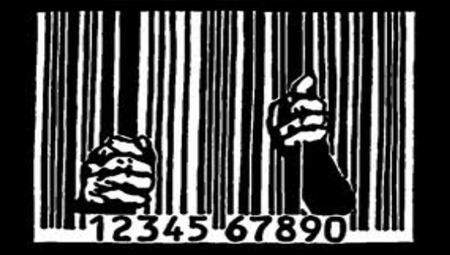Today, I want to look at a case that just went to federal court, became a class action case, against private prisons, about slavery. Joining me to kind of explain what’s going on there is Glen Ford. He’s the executive editor of the Black Agenda Report, and he is also the editor of the Big Lie.
Glen, thanks for joining me.
GLEN FORD: Thanks for having me.
EDDIE CONWAY: Okay, what’s this new suit case that just popped up?
GLEN FORD: Well, you know, that suit has been in the legal system for almost three years. The big development is that, as you said, a judge gave the plaintiffs class action status, and that means that the plaintiffs will expand from just a small number of detainees to cover, well, the tens of thousands of people who have passed through this immigration facility in Aurora, Colorado. That’s a lot of people, and that means a lot of money is at stake.
But what’s really most importantly at stake is the principle. The case involves a 1,500-bed facility that was run by the GEO Group. The GEO Group is one of the two corporations that dominate the whole private prison business. About 60,000 immigrants will be affected now that it’s a class action suit. They say that they were paid only a dollar a day for their labor, which involved a whole range of jobs just about everything that you can think of that makes a prison tick. That means that the GEO Group, this huge corporation, which is listed on the New York Stock Exchange, that corporation pocketed the money that it would have had to pay free labor to keep the prison clean, and to serve meals to inmates and all those other duties that go on in a large prison.
The corporation says that all these people volunteered to work for just a dollar a day. But the plaintiffs say they had no other choice, and that is why they call it slavery. The Colorado prison that we’re talking about here is under the authority of federal immigration authorities, but the same issue should apply to the Federal Bureau of Prisons, which runs the federal prison system, and to the states, and the states are the places that lock up most of the two and a half million Americans who are in jail.
Typically, at state prisons, an inmate will earn only a fraction of a dollar an hour, if he or she is paid anything at all, and at these state prisons a virtual who’s who of corporate America is reaping the big profits from this as they say slave labor. That includes a whole lot of so-called defense industries, but also regular brand names that everybody knows, like Victoria’s Secret and JCPenney and Kmart.
Last year, inmates in about six states went on strike, and this time, their principle demand was for the abolition of prison slavery. One of the organizations that spearheaded that, at least on the outside, is the Incarcerated Workers Organizing Committee, and the Free Alabama Movement. Its inside and outside offices have also been very prominent in this abolition of slavery movement within the U.S. prisons.
EDDIE CONWAY: Okay. It’s clear, and to me, I’ve seen that ICE is saying that the difference between them forcing people to work for $1 a day and the private prisons is that they don’t punish people if they don’t take the job. So basically they’re saying prisoners are volunteering to work for $1 a day in the federal system. Does that make a difference if you’re paying people less than minimum wage? Is that still not slavery?
GLEN FORD: You know, it is accepted in the law that prisoners, the very condition of being a prisoner makes it in many cases impossible for one to give real consent, and if that principle is followed then the corporation’s claim has no weight at all. Common sense tells you that when someone has life and death authority over you 24 hours per day and their decisions will affect how long you stay in this state of not being free, you really don’t have a choice. But at least they’ll get to argue this, and not just as individuals but as a class of people whose labor certainly has value that can be proven because it’s what made the prisons run, and we can measure the value of their labor by what it costs for free folks.
EDDIE CONWAY: Well, you know, the thing that strikes me with the 13th Amendment is it says that if you get convicted of a crime, then you’re subjected to slavery, indentured servitude, et cetera. But I look at all of those local county jails and city, municipality jails, and all of those people in those jails are subjected to that $1 a day kind of policy also, and they work for their dollar. They’re not convicted of any crimes, and it’s maybe a million people in those jails.
GLEN FORD: That’s true.
EDDIE CONWAY: Would this law suit eventually be beneficial to them?
GLEN FORD: It’s a hell of a Pandora’s Box, and that’s why the list of plaintiffs in this one detention facility went from a very small one to 60,000 as soon as they opened up the class action avenue, and that could apply throughout the whole system. They run folks in and out of detention even more quickly than in the conventional prison system.
EDDIE CONWAY: Mmm. Okay. One of the things I just recently heard in reference to that strike that they had, the national strike, where prisons participated in six states, I understand now in August the 19th – they’re talking about having a million families of prisoners march in D.C. for the human rights of prisoners on August 19th. Have you heard about that?
GLEN FORD: Oh, yes. That’s very important. Because you know, of course, how difficult it is to organize inside prisons, and when you do organize, you can’t make the corporate media cover you and alternative media can’t cover you, and so many of these strikes and other actions that have happened inside prisons, the news never reached the light of day. And so the organizers are now calling upon the friends and families of prisoners and they number in the tens of millions, since there are two and a half million people behind bars in this country, asking their participation to come to Washington and other places in August to show that there is a constituency behind beyond the locked doors for people who’ve been incarcerated.
EDDIE CONWAY: Well, please, help keep us updated on what’s happening with this suit case, and is there anything, any final words you want to share?
GLEN FORD: Well, you know, it was only last week that Attorney General Sessions basically reversed President Obama’s order that the federal prison system would be getting out of its contracts with private prisons. Attorney General Sessions said he anticipated that the private prisons would be getting a lot more business from the federal government even though crime has been going down.
But that didnt have any effect on the immigration authorities who handle so many, many hundreds of thousands of inmates. This has now impacted upon the second-largest and growing sector of the U.S. prison system. If we included detainees, the numbers would be a whole lot bigger than two and a half million, which is by far the biggest prison population in the world.
EDDIE CONWAY: Okay. All right, thank you for joining me.
GLEN FORD: Thank you.
[CAReview: For more information, please visit the source link below.]
Source: therealnews.com




